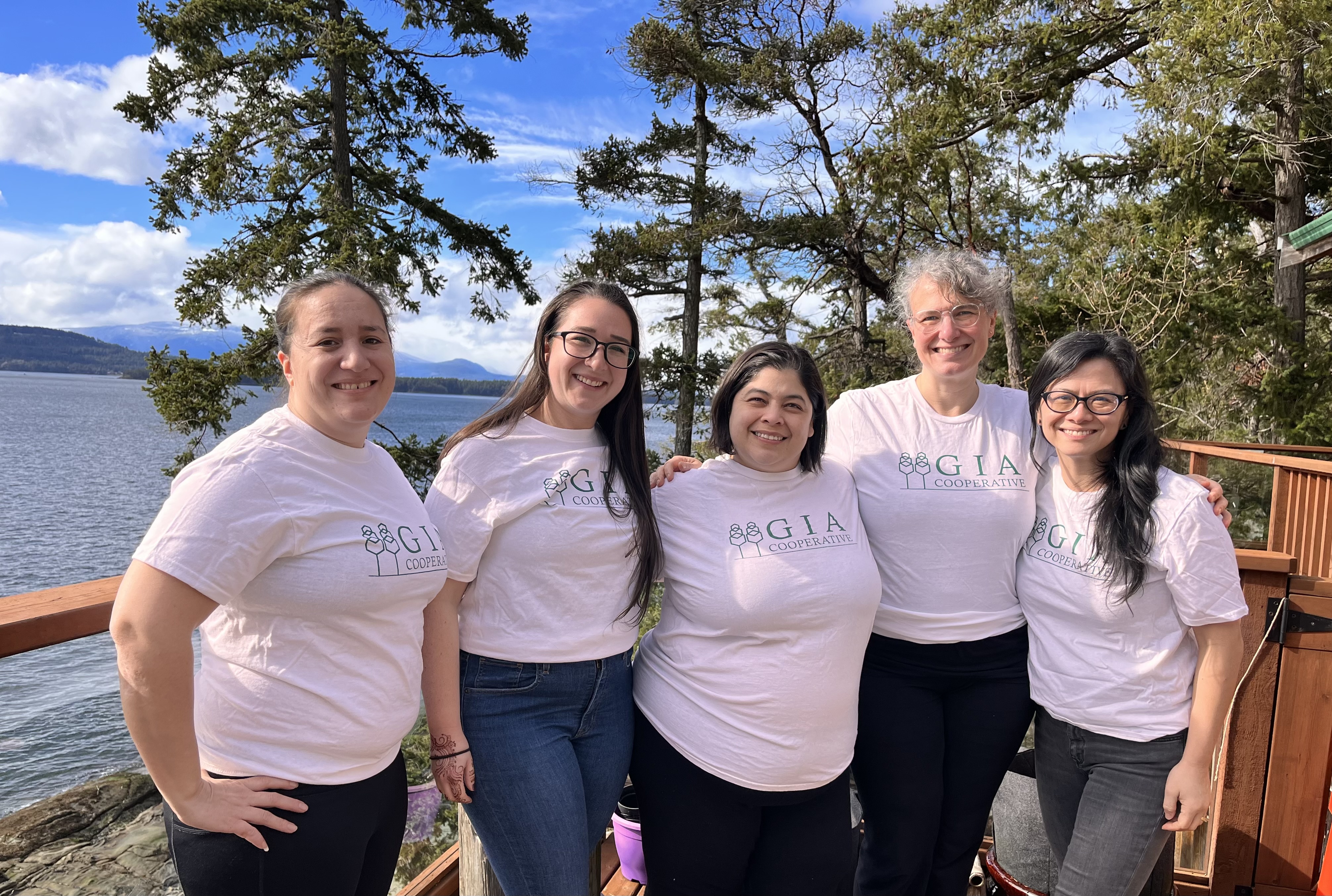
Founded in 2021 by five Vancouver-based graduates from the Co-operative Management Education Masters of Management program at the International Centre for Co-operative Management Saint Mary’s University in Halifax, GIA Consulting Co-op works to serve new and established co-ops by providing support for operations and governance grounded in the co-operative principles and values. Coming out of the program, the founders wanted to put their education, experience and love of co-ops to work and saw an opportunity in providing operational and strategic supports to co-ops.,GIA is able to provide support in areas such as strategic planning, project management, operations, member engagement, marketing, environmental sustainability, procurement and supply chain management including Principle 6, event management, certification assistance (including LEED, BCorp and Living Wage), grant writing, and Human Resources.
“There’s a number of folks in the Co-operative development space,” says co-founder Ashley Grewal. “But what we experience and heard was that co-ops are struggling in figuring out the day-to-day. This is where we wanted to interlock with the current ecosystem to create a stronger Co-operative Economy”
Even after graduating, the founders have retained close ties to the Saint Mary’s program, and agree it gives them a valuable background rooted in both theory and practice. Cofounder Lissette Lemus found the program also exposed them to the needs of small and medium-sized co-ops and how these would benefit from the expertise GIA can provide.
“Going through the program actually allowed us to start understanding the whole landscape of cooperatives in the world in a more thorough way,” she says.
Cofounder Tara Williams agrees that the opportunity to help small to medium co-ops has been a rewarding part of her experience with GIA. The Co-op’s members have appreciated seeing the difference their skills have made to the co-ops they’ve worked with and the relationships they’ve built in the process, both outside and within GIA itself.
“We have a lot of fun with each other and we’re able to use our knowledge and expertise to fulfill our mission of making a stronger local cooperative economy,” she says.
Like any other business, GIA has had to contend with the less fun aspects of its daily operations, such as invoicing, payroll, and taxes. Lemus notes, however, that being a co-operative makes these challenges much easier to handle because of the support of each other and the broader Co-op Community.
“The difference between a small business that is not a cooperative and our worker co-op has been that we have been able to share the load in order to carry on with those challenges,” she says. “Whereas if you are like a private owner, everything is on you.”
Along similar lines, the Co-op’s members encourage other new or emerging co-ops to take advantage of the support that’s available within the sector, rather than starting from scratch. All co-ops should remember, Williams believes, that helping each other is one of the movement’s principles.
“It’s principle six,” she says. “Leverage principle six, reach out to the rest of your co-ops …Really lean into the network and utilize that strength.”
In the meantime, GIA will continue to do its part to fulfill this principle.
“Our goal, our mission is really to create a stronger local co-operative economy and that’s by working with co-ops, by helping to connect co-ops,” says Williams.